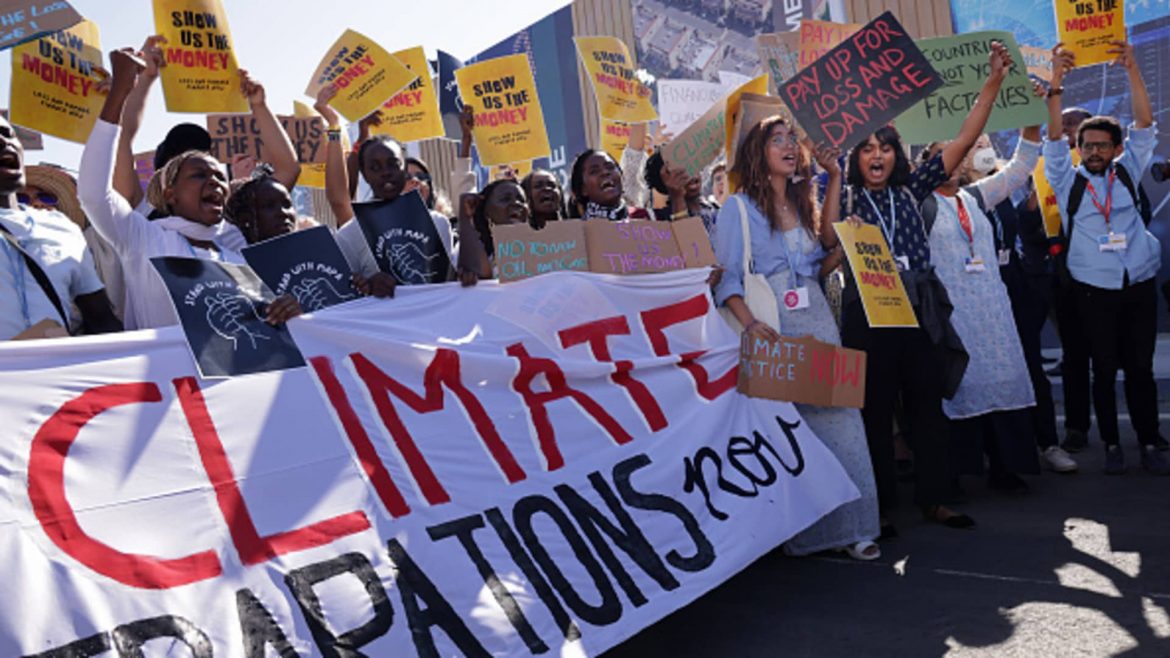Countries are reported to have reached an agreement on key measures to supply funds to the world’s most vulnerable people to repair the damage from climate breakdown.
Loss and damage, which is used to refer to the rescue and rehabilitation of communities stricken by climate disaster, has been one of the most vexed issues at global climate talks for more than a decade.
Poorer countries, especially those in Africa are responsible for less than 3% of the world’s total greenhouse-gas emissions. Yet, they find themselves on the front lines of the impact of climate change, with the population grappling with more frequent climate-related disasters such as rising seas level, flooding and hot weather.
Recall that In a breakthrough last November, the Cop27 summit in Egypt agreed to a loss and damage fund being set up. But four meetings of the transitional committee, charged with designing the fund, between March and October broke down in rancour as countries wrangled over who should bear most responsibility for paying in, which countries should benefit, and how the fund should be governed.
Now, governments from richer and poorer countries have drawn up the blueprint for a new “loss and damage” fund after a tense two-day meeting under UN guidance in Abu Dhabi that ended late on Saturday night.
Read also: 800 evacuated as wildfire strikes eastern Spain
According to reports, the loss and damage fund will be administered at first by the World Bank, and will draw on funding sources including large developing countries as well as the US, the EU and the UK. No firm target has been set for how much money the fund will disburse, but countries most affected by the climate crisis hope it will reach hundreds of billions of dollars within a few years.
The blueprint must be formally adopted at the Cop28 UN climate summit in Dubai at the end of this month, but this weekend’s agreement by the transitional committee, set up under the UN framework convention on climate change, means that is likely.
Avinash Persaud, who is a climate envoy for Barbados and the transition committee for Latin America and the Caribbean, said: “This was a challenging but critical outcome. We now have for the first time an instrument that will operationalise an international fund for grant-based financing of reconstruction, rehabilitation and relocation after extreme weather or slow onset events. This is an important step forward and will bring positive momentum to other climate actions.”
Reports show that developing countries made key concessions, such as agreeing that the fund could be managed on an interim basis by the World Bank. Developed countries also agreed language that implied they should be the key donors to the fund, as they would be “urged” to contribute while others would be “encouraged” to do so.
However, campaigners have said that the agreement was not enough to guarantee the funds needed for vulnerable countries, likely to reach trillions of dollars a year by the end of this decade.
Harjeet Singh, the head of global political strategy at Climate Action Network International, was quoted as saying: “It is a sombre day for climate justice, as rich countries turn their backs on vulnerable communities. [This] falls short of providing vulnerable communities with adequate assurance that their financial needs for coping with climate impacts and rebuilding their lives will be met.”
Story was adapted from the Guardian.
